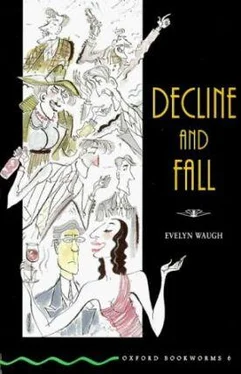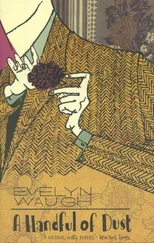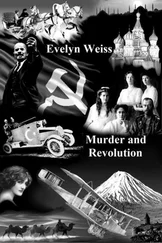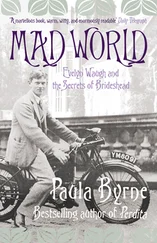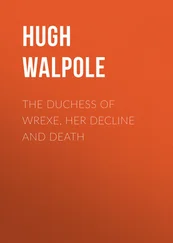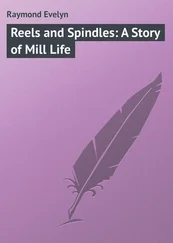'When I say, "Are you ready? Go!" I want you to go, Mr Prendergast could be heard saying. 'Are you ready? Go! Oh, why don't you go? And his voice became drowned in shrill cries of protest.
'Mind you, went on Philbrick, 'I haven't always been in the position that I am now. I was brought up rough, damned rough. Ever heard speak of «Chick» Philbrick?
'No, I'm afraid not.
'No, I suppose he was before your time. Useful little boxer, though. Not first‑class, on account of his drinking so much and being short in the arm. Still, he used to earn five pound a night at the Lambeth Stadium. Always popular with the boys, he was, even when he was so full, he couldn't hardly fight. He was my dad, a good‑hearted sort of fellow but rough, as I was telling you; he used to knock my poor mother about something awful. Got jugged for it twice, but my! he took it out of her when he got out. There aren't many left like him nowadays, what with education and whisky the price it is.
' «Chick» was all for getting me on in the sporting world, and before I left school I was earning a few shillings a week holding the sponge at the Stadium on Saturday nights. It was there I met Toby Cruttwell. Perhaps you ain't heard of him, neither?
'No, I am terribly afraid I haven't, I'm not very well up in sporting characters.
'Sporting! What, Toby Cruttwell a sporting character! You make me laugh. Toby Cruttwell, said Philbrick with renewed emphasis, 'what brought off the Buller diamond robbery of 1912, and the Amalgamated Steel Trust robbery of 1910, and the Isle of Wight burglaries in 1914? He wasn't no sporting character, Toby wasn't. Sporting character! D'you know what he done to Alf Larrigan, what tried to put it over on one of his girls? I'll tell you. Toby had a doctor in tow at the time, name of Peterfield; lives in Harley Street, with a swell lot of patients. Well, Toby knew a thing about him. He'd done in one of Toby's girls what went to him because she was going to have a kid. Well, Toby knew that, so he had to do what Toby told him, see?
'Toby didn't kill Alf; that wasn't his way. Toby never killed no one except a lot of blinking Turks the time they gave him the V.C. But he got hold of him and took him to Dr Peterfield, and ‑ Philbrick's voice sank to a whisper.
'Second heat, get ready. Now, if you don't go when I say «Go», I shall disqualify you all; d'you hear? Are you ready? Go!
'… He hadn't no use for girls after that. Ha, ha, ha! Sporting character's good. Well, me and Toby worked together for five years. I was with him in the Steel Trust and the Buller diamonds, and we cleared a nice little profit. Toby took 75 per cent, him being the older man, but even with that I did pretty well. Just before the war we split. He stuck to safe-crackinf, and I settled down comfortable at the "Lamb and Flag", Camberwell Green. A very fine house that was before the war, and it's the best in the locality now, though I says it. Things aren't quite so easy as they was, but I can't complain. I've got the Picture House next to it, too. Just mention my name there any day you like to have a free seat.
'That's very kind of you.
'You're welcome. Well, then there was the war. Toby got the V.C. in the Dardanelles and turned respectable. He's in Parliament now ‑ Major Cruttwell, M.P., Conservative member for some potty town on the South Coast. My old woman ran the pub for me. Didn't tell you I was married, did I? Pretty enough bit of goods when we was spliced, but she ran to fat. Women do in the public‑house business. After the war things were a bit slow, and then my old woman kicked the bucket. I didn't think I'd mind much, her having got so fat and all, nor I didn't not at first, but after a time, when the excitement of the funeral had died down and things were going on just the same as usual, I began to get restless. You know how things get, and I took to reading the papers. Before that my old woman used to read out the bits she'd like, and sometimes I'd listen and sometimes I wouldn't, but anyhow they weren't the things that interested me. She never took no interest in crime, not unless it was a murder. But I took to reading the police news, and I took to dropping in at the pictures whenever they sent me a crook film. I didn't sleep so well, neither, and I used to lie awake thinking of old times. Of course I could have married again: in my position I could have married pretty well who I liked; but it wasn't that I wanted.
'Then one Saturday night I came into the bar. I generally drop in on Saturday evenings and smoke a cigar and stand a round of drinks. It sets the right tone. I wear a buttonhole in the summer, too, and a diamond ring. Well, I was in the saloon when who did I see in the corner but Jimmy Drage ‑ cove I used to know when I was working with Toby Cruttwell. I never see a man look more discouraged.
' "Hullo, Jirnmy!" I says. "We don't see each other as often as we used. How are things with you?" I says it cordial, but careful like, because I didn't know what Jimmy was up to.
' "Pretty bad," said Jimmy. "Just fooled a job."
' "What sort of job?" I says. "Nobbling," he says, meaning kidnapping.
' "It was like this," he says. "You know a toff called Lord Utteridge?"
' "The bloke what had them electric burglar alarms," I says, "Utteridge House, Belgrave Square?"
' "That's the blinking bastard. Well, he's got a son — nasty little kid about twelve, just going off to college for the first time. I'd had my eye on him," Jimmy said, "for a long time, him being the only son and his father so rich, so when I'd finished the last job I was on I had a go at him. Everything went as easy as drinking," Jimmy said. There was a garage just round the corner behind Belgrave Square where he used to go every morning to watch them messing about with cars. Crazy about cars the kid was. Jimmy comes in one day with his motor bike and side‑car and asks for some petrol. He comes up and looks at it in the way he had.
' "That bike's no good," he says. "No good?" says Jimmy. "I wouldn't sell it not for a hundred quid, I wouldn't. This bike," he says, "won the Grand Prix at Boulogne." "Nonsense!" the kid says; "it wouldn't do thirty, not downhill." "Well, just you see," Jimmy says. "Come for a run? I bet you I'll do eighty on the road." In he got, and away they went till they got to a place Jimmy knew. Then Jimmy shuts him up safe and writes to the father. The kid was happy as blazes taking down the engine of Jimmy's bike. It's never been the same since, Jimmy told me, but then it wasn't much to talk of before. Everything had gone through splendid till Jimmy got his answer from Lord Utteridge. Would you believe it, that unnatural father wouldn't stump up, him that owns ships and coal mines enough to buy the blinking Bank of England. Said he was much obliged to Jimmy for the trouble he had taken, that the dearest wish of his life had been gratified and the one barrier to his complete happiness removed, but that, as the matter had been taken up without his instructions, he did not feel called upon to make any payment in respect of it, and remained his sincerely, Utteridge.
'That was a nasty one for Jimmy. He wrote once or twice after that, but got no answer, so by the time the kid had spread bits of the bike all over the room Jimmy let him go.
' "Did you try pulling out 'is teeth and sending them to his pa?" I asks.
' "No," says Jimmy, "I didn't do that."
' "Did you make the kid write pathetic, asking to be let out?"
' "No," says Jimmy, "I didn't do that."
' "Did you cut off one of his fingers and put it in the letter‑box?"
' "No," he says.
' "Well, man alive," I says, "you don't deserve to succeed, you just don't know your job."
' "Oh, cut that out," he says; "it's easy to talk. You've been out of the business ten years. You don't know what things are like nowadays."
Читать дальше
